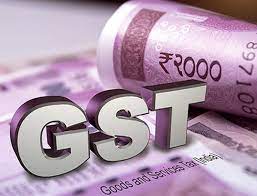GST IMPACT ON SMALL SIZE BUSINESS & INFORMAL BUSINESS
Author – PARUL DWIVEDI, Student at UPES, DEHRADUN
INTRODUCTION
‘One Nation, One market, One Tax[1]’ is the main purpose of GST[2]. This is the biggest tax reform since independence. It came into effect from 1st July 2017. GST has had both a positive and a negative impact on Small size business and informal business. All the tax on Good and Service ( VAT Tax, Purchase tax, luxury tax) now merged into one and called as GST.
The GST is divided into four parts: CGST ( Central Goods and Services tax), SGST ( State Goods and Services tax) & IGST ( Interstate Goods and Services tax), UTGST ( Union Territory Good & Service Tax).
GST COUNCIL: Any report which is file against GST is filed in GST COUNCIL[3]. The chairman of GST Council is Union Finance Minister of India. The Other member of GST Council are Union State minister of every state.
FUNCTION OF GSTN: The GST Network is responsible to manage the registration, return, invoice, payment and refund.
· POSITIVE IMPACT:
GST has proved to be very beneficial for small business people. In SMEs, there are many units that produce only the final product. They will also get tax credit on raw materials and import components. However, the small businessmen will have to keep complete records of their business in order to get benefit of GST. According to the provision of GST, the manufacturer or traders will get the benefit of tax (what they paid) on the purchase of the product only when they maintain all the records on papers.
MULTI STAGE TAX
A product passes through the multiple hands from manufacturer to destination ( in the hands of customer). The multi stages[4] are:
- Purchase the raw material
- manufacturing
- selling to wholesaler
- Then to retailer
- Then finally to customer
The GST applicable on each stage which make it a Multistage Tax.
GST increased the threshold limits for the businesses which will help in growing small business. Business does not have to register or pay if their annual turnover is less than 20 lacs and 10 lacs for North eastern business which was earlier (5-10 lacs). Also business whose turnover is between 20-50 lacs have to pay 6% GST and the business whose turnover is upto 1.5 crore have to pay only 1% GST. This have a positive impact on Small business and informal business.
Earlier the tax rules of all the states were different which makes the entire process very difficult. Different VAT[5] registrations had to be done in all the states and a lot of fees had to be paid for their registration. Although GST is a centralized tax. Tax rules of all states are same which make it easier for all the small businessmen. GST follows the uniform code.
GST has removed the complication between central and state tax. GST has made both the methods of tax filing and return very easy. Earlier small traders had to pay many different types of State taxes ( VAT Tax, Purchase tax and Luxury tax) and deal with many tax authorities based on the nature of their business. But now they all merged into one common tax which is called as GST. So now business man can be sure either the tax levy under center or state.
Earlier the tax on logistics used to be very high. Transport of traders used to take a lot of time at the state border due to lot of paper work and entry taxes which also cause the delay in delivery of goods. But since the introduction of GST, transportation on the interstate border has become very easy. Government replace the entry taxes on interstate borders with IGST ( Interstate Goods and Services tax) which is composed by CGST ( Central Goods and Services tax) & SGST( State Goods and Services tax) and collected by Central Government. This step increased the interstate businesses and lower the maintenance (Labour and fuel cost) of businessmen.
· NEGATIVE IMPACT:
Registration of the e commerce business is compulsory under GST. Their annual turnover is not important for e-commerce business. The threshold limit[6] are not applicable on these business. They have to pay tax on lower rate but have to pay three time in a year. Also, GST require all the records on paper and you have to close the record on monthly basis and pay the GST. If you are unable to file a return in a month, it charges 100 rupee per day as fine and also until then customers can not files their tax credit till then.
AMENDMENT (2023-2024)
Following Amendment[7] are announced by NIRMALA SITHARAM[8]
- Section 10- Composition Scheme if taxpayer supplied goods via e commerce platform.
- Section 16- If fails to pay the invoice value then they have to pay the interest.
- Section 37, 39, 44 and 52- Restrict taxpayer from paying some GSTR
- Limit changed to 25% to 100% of tax regarding compound offence.
REFRENCES
- TaxReply/ https://taxreply.com › gst › GST_C…/GST Changes by Budget 2023
- Bajaj Finserv/ https://www.bajajfinserv.in › insights/ Benefits and challenges of GST on small and medium businesses
- gst.gov.in/ https://www.gst.gov.in/GST Portal
- https://gstcouncil.gov.in
[1] https://www.indialawjournal.org
[2] https://gstcouncil.gov.in
[3] gst.gov.in
[4] https://pib.gov.in
[5] https://groww.in › … › Tax/ What is Value-Added Tax (VAT) in India? Definition & Types
[6] Law Insider/https://www.lawinsider.com › thresh…
[7] https://taxreply.com
[8] Wikipedia/https://en.m.wikipedia.org › wiki/Nirmala Sitharaman
